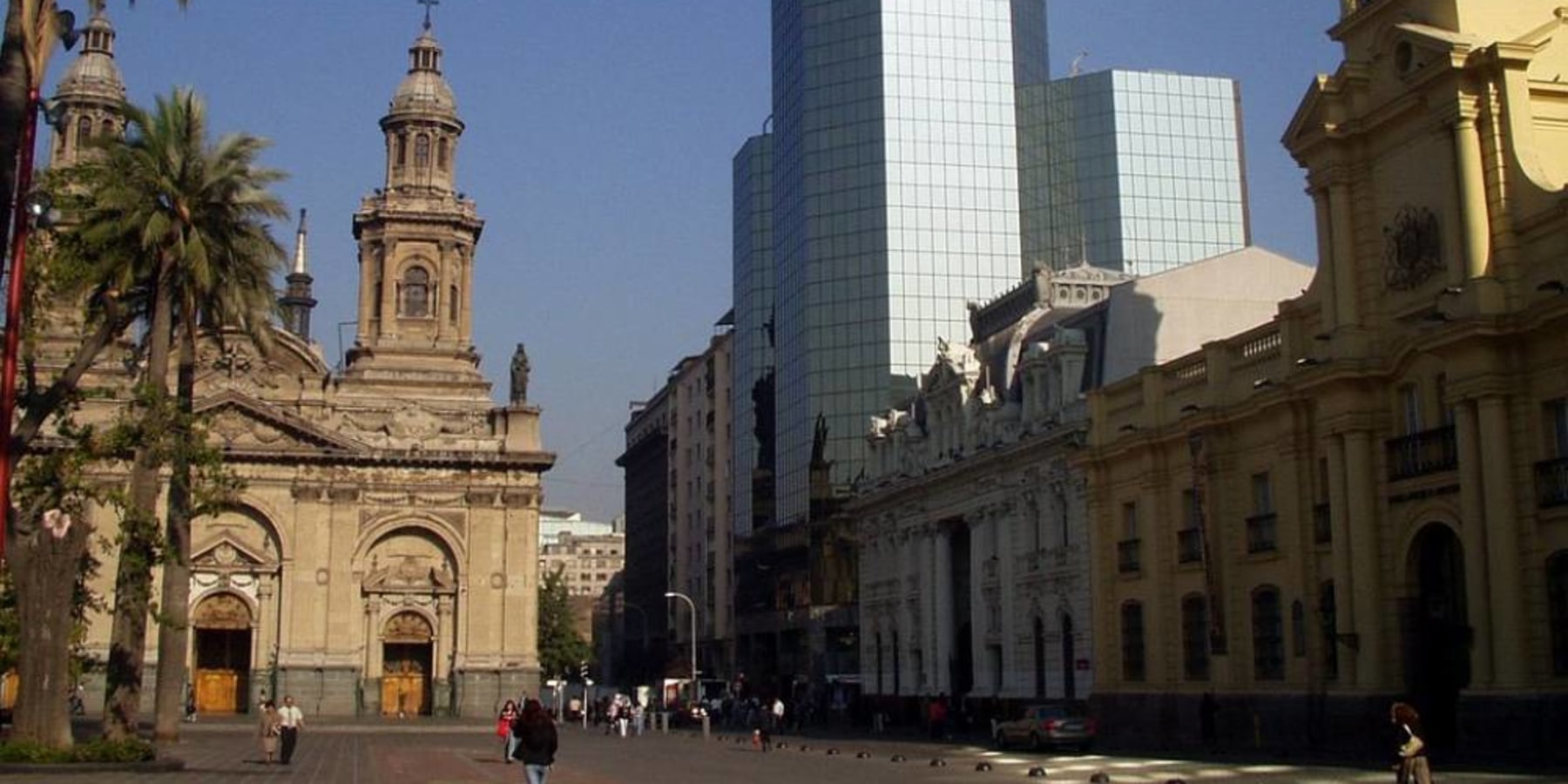
Full country name: Republic of Chile
Area: 756,950 sq km (292,500 sq miles)
Length: 4,300 km, (2700 miles)
Maximum Width: 400 km (248 miles)
Population: 16 million (growth rate 1.2%)
Capital city: Santiago (pop 6,000,000)
People: 95% European descent and mestizo, 9% Indian
Language: Spanish and a handful of native languages, including Aymara, Mapuche and RapaNui
Religion: 89% Roman Catholic, 10% Protestant, less than 1% Jewish
Government: Republic President: Michelle Bachellet
GDP: US$184 billion
GDP per head: US$12,500
Annual growth: 5.3%
Inflation: 4.5%
Major industries: Copper, fish meal, wine
Major trading partners: USA, Japan, Germany, UK
Time: GMT/UTC minus 4 hours
Electricity: 220V, 50 Hz
Weights & measures: Metric
Handy Data
Official Language Spanish. Although is most hotels and restaurants there are English speaking personnel.
Currency
The local currency is the Chilean Peso. 5, 50, 100, 200 and 500 pesos coins are used. Money bill exist for 1.000, 5.000, 10.000 and 20.000 pesos.
Money Exchange
Money Exchange is done at Money Exchange Bureau or Banks. Exchange can also be made at hotels and at the airports.
Tips
Although tips are not obligatory, a 10% tip is normal in restaurants. It is not customary to tip taxi drivers. Time for most of the year, Chile is four hours behind GMT. Easter Island is two hours behind mainland. Working Hours 09.30 AM to 19.30 PM from Monday to Friday.
Commercial Hours
10.00 AM to 19.00 PM from Monday to Friday. Shopping Malls are open from 10.30 AM to 21.30 PM including Saturday and Sunday.
Passports and Visas
All foreign visitors are required to have valid passports to enter and exit the country except nationals from some South American countries. If your home country requires a visa of Chileans visiting your country, we recommend you check with the Chilean consulate in your country before traveling to Chile.
Vaccinations
No vaccinations are required to enter Chile.
Health
We recommend all tourist travel with a Health Insurance. Adequate Health Centers exists all along the country.
Communications
Chile is well covered by all kinds of communication services. In most localities you will have access toour direct dialing system (DDI). In all cities it is possible to connect to the Internet.
Credit Cards
Most major credit cards are used and accepted. There are Automatic Cashiers In commercial and banking areas. It is easy to find automatic teller machines (Redbanc Network) for all local banks as well as Cirrus Cards 24 hours a day, 7 days a week.
Electricity
220 volts, 50 Hz.
Water Drinking
Water is totally safe. However foreign visitors are advised to drink mineral water.
Traveling Tips
- Bring with you only the necessary or indispensable clothing. Its always better traveling light.
- Make your money exchange only in exchange shops or banks.
- It is recommended to wear light colored clothing because of mosquitos and comfortable shoes when touring.
- When going out take with you the hotel address and telephone.
- Be careful with passports, identity cards and all other personal documents.
- Hand luggage is your responsibility.
- Be punctual.
- Pay your extras at hotel before leaving.
- Leave your room keys at hotel counter before going out to prevent loss or theft of the key .
- Check that your luggage is embarked in our transporting vehicles.
- Remove all luggage tags of all previous travels from your luggage. Only use those of the currentjourney..
Shopping Tips
The Lake District is the home of the Mapuche Indians, and their colorful handicrafts such as find wool knitting, basketry, wood, leather, shell, and metal works can be found in craft fairs, shops and boutiques of the area.
Food and Drink
For traditional Chilean seafood try the local specialties, such as; curanto (mixture of seafood, fish, meat, and sausages), conger eel ( deep water fish), Parillada de Mariscos (grilled mixed seafood) And the variety of Chilean wines.

